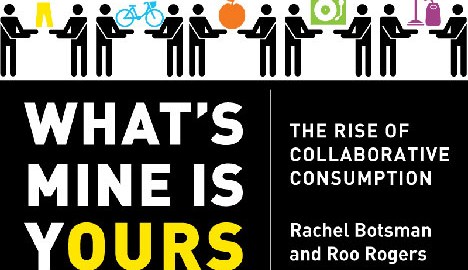Musings on the Future of Capitalism: What’s Mine Is Yours


In their new book What’s Mine is Yours, Rachel Botsman and Roo Rogers brilliantly capture the current socio-economic zeitgeist. While the last 50 years were all about the hyper-consumerism fueled by advertising and credit, the current period is all about the creation of a new model of collaborative consumption that is based on a belief in the commons, trust between strangers and new ways to exploit excess capacity. The two authors connect the dots on a number of intertwining trends – from crowdsourcing to environmentalism – by adroitly referencing a number of important thought leaders (e.g. Nobel Prize winner Elinor Ostrom, who has written extensively about commons-based societies). As they lay out the basic principles of their economic model, Botsman and Rogers highlight a number of visionary companies that are changing the way we think about consumption: Zipcar, FreeCycle, Netflix, Etsy, CouchSurfing and Zopa.

(1) People will have “reputation bank accounts” alongside their regular bank accounts, as well as a reputation rating that will literally measure their contributions made to various types of collaborative communities
(2) Peer-to-peer marketplaces where people “sell” their excess capacity (cars, energy, square footage, products, food) will be viewed as a secondary source of income
(3) There will be an explosion in services that enable consumers to repair, upgrade and customize owned or secondhand products
(4) People will be able to use talents, skills or ideas as a “virtual currency” instead of paying with cash or credit
(5) The consumer preference for handmade or locally produced goods will become the norm
(6) Local crowdsourcing efforts at the neighborhood level will grow in popularity around creative and social projects
(7) There will be a whole ecosystem of apps and software for our phones and computers that will enable consumers to share any kind of product or service.
In short, we are witnessing a “momentous time of change” when the very principles of 20th century capitalism are being challenged. Or, as Tyler Durden of Fight Club (cleverly referenced in the book) would say, “You are not the clothes you wear. You are not the contents of your wallet… You are not your grande latte. You are not the car you drive. You are not your f*cking khakis. You’re the all-singing, all-dancing crap of the world.”
These principles are explained in greater detail on the website for Collaborative Consumption.





